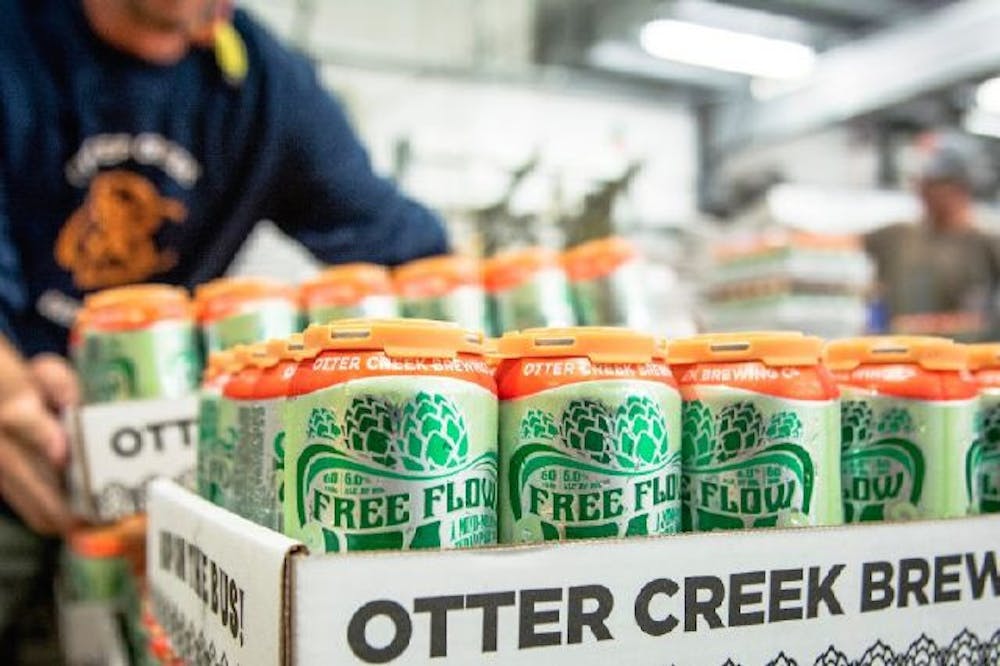MIDDLEBURY — Earlier this month, the Vermont House of Representatives passed a bill changing the relationship between small breweries and distributors in the state. The bill now goes to the Senate, which is set to vote in the coming weeks. If ratified, the new law would give brewers more flexibility to leave contracts, a move that reflects their growing prominence.
Relationships between breweries and distributors are crucial to the beer industry. Small to midsize producers such as Drop-In and Otter Creek in Middlebury rely on agreements with large distributors to market, transport and place their products. At the same time, distributors benefit from the strength of local brands in growing and diversifying their businesses, which mostly consists of highlighting multinational brands such as Anheuser Busch and Molson Coors.
Under the current system, however, brewers have little negotiating power over these agreements. Existing franchise laws make it effectively impossible for brewers to leave contracts— a vestige of the 1970s when Vermont was populated by many small distributors and few large beer companies. At the time, mom and pop wholesalers feared that powerful brands could pull their beer at any time with little financial repercussion. In response, the legislature drafted laws requiring brands to prove in court “good cause” to leave a contract. Even then, wholesalers would have 120 days to fix their problems, at which point both parties had to remain in the agreement.
Today, the landscape for breweries in Vermont has dramatically shifted. There are 51 small breweries and only four distributors. While their relationships are mostly amicable, brewers recognize the imbalance in negotiating power if problems were to ever appear.
“The wholesalers dwarf the little breweries,” explained Steve Parkes of Drop-In Brewery. “If we were to become unhappy for whatever reason, with the laws existing as they did, we would be unable to take our brand back [from the distributor].”
The proposed bill addresses these concerns. Breweries producing less than 50,000 barrels annually or contributing to less than three percent of a distributor’s franchise value would be required to draft contracts laying out the terms of termination. Only four Vermont breweries produce more than this amount: Long Trail, Otter Creek, Harpoon and Mad Hat. Moves to increase the scope of the law were quickly dismissed since doing so would tip the balance too far towards the brands, reintroducing the fears of the early wholesalers.
“It’s essentially just allowing us to leave a contract if it’s not working for us,” described Avery Schwenk, president of the Vermont Brewers Association, to the VTDigger.
But some are concerned that the changes jeopardize a dynamic that has proven to be successful over the past several decades. The craft beer industry in Vermont leads the country, producing around 17.4 gallons of beer per adult resident, according to the Vermont Brewers Association. Its total economic output is estimated to be around $376.7 million, higher than the state’s maple syrup industry or its ski resorts. This explosive growth was fueled in part by the ability of small brewers to use the extensive distribution networks established by large wholesalers.
“We reach all corners of the state. We’re able to penetrate that market much more deeply than individual brewers can,” said Todd Bouton, General Manager at Farrell Distributing, one of the state’s four major distributors.
Companies like Farrell pay a significant share of marketing and logistics costs, as well as absorb unanticipated expenses such as spoiled beer. Because of these substantial investments, distributing craft beer take years to turn profitable. If the changes go through, they may be less likely to accept these early costs, leading to fewer or weaker investments in new craft brewers.
Nevertheless, both parties are hopeful that the bill will not substantially alter their business operations. They’re convinced that longstanding relationships between the layers will continue, with little visible change for consumers.




